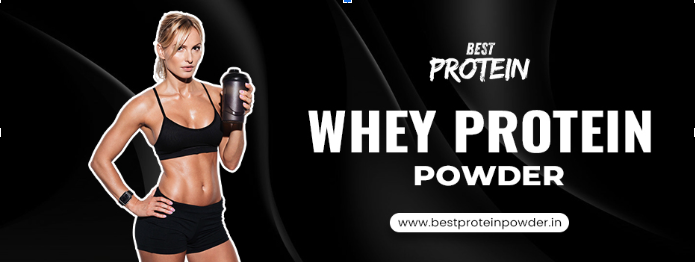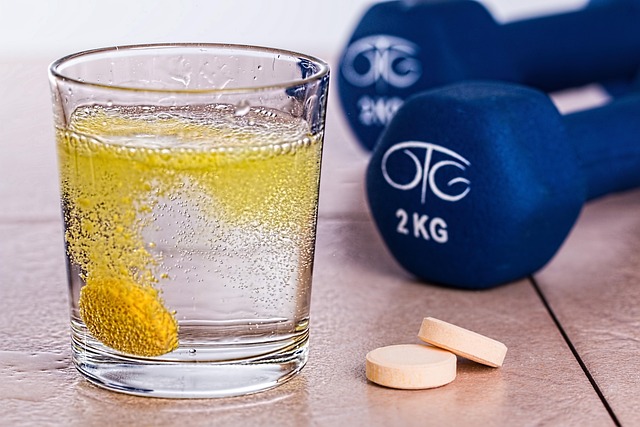Is Whey Isolate Suitable for Everyone?

Strong 8k brings an ultra-HD IPTV experience to your living room and your pocket.
Whey isolate, a refined form of whey derived from milk. It contains high protein and lower lactose levels. It's an ideal supplement to build muscle for post-workout recovery and meet your daily protein needs. Although it suits many people, it's certainly not a universal solution. This article will discuss who might gain from using whey isolate, those who should avoid it, and the most important aspects to ensure that it is compatible with your nutritional and health requirements.
Who It's Suitable For
Athletes and Fitness Enthusiasts
Whey isolate is highly effective for people who are engaged in regular fitness. The high content of leucine, a crucial amino acid that stimulates muscle protein synthesis and promotes recovery and development. Its rapid absorption makes it a great post-workout option, helping accelerate recovery after intense training. Research suggests that 20-30g of whey isolate in post-workouts could boost muscle recovery for weightlifters and athletes.
People with lactose intolerance
Whey isolate undergoes additional processing to eliminate most lactose, making it more digestible for those with mild to moderate lactose intolerance. This enables those who usually avoid dairy to consume the highest quality protein source without discomfort, although tolerance can vary.
General Protein Needs
If you're struggling to meet your daily protein requirements, Whey isolate is suggested to be consumed at 1.6-2.2 grams per kilogram of body weight for active people. It is an excellent option for busy students, professionals or those with less time to cook protein-rich meals. A single sachet will provide about 20-25g of protein, which makes it a great solution to bridge the gap in diet.
Who Should Avoid or Be Cautious
Milk Allergies
Whey is a milk-derived protein; therefore, it's not recommended for people suffering from dairy allergies. Whey isolate can cause allergic reactions ranging from mild rashes to severe anaphylaxis. Alternatives based on plants such as peas, rice, hemp, or rice protein are safer for those suffering from allergies.
Kidney or Liver Issues
High protein intake, which includes Whey isolate, may cause liver or kidney damage in people with pre-existing conditions such as chronic kidney disease and liver cirrhosis. If you are concerned about your health, consult a doctor to determine the safe protein levels and whether whey isolate is appropriate.
Digestive Sensitivities
Although whey isolate is not high in lactose, some people might still experience bloating, gas or discomfort. For those with sensitive digestive systems, you need to start with a smaller portion (e.g. 10 grams) to determine if they are tolerant before increasing the dosage.
Vegans or Dairy-Free Diets
Whey isolate isn't compatible with dairy-free or vegan lifestyles. Those who follow these diets should choose plant-based protein powders to align with their dietary preference.
Other Considerations
Cost
Whey isolate is more costly than concentrates or complete protein foods such as chicken, eggs, or lentils. For people with limited budgets, choosing low-cost protein-rich food items may be a better option, and keeping whey isolate for use on a limited basis.
Not a Magic Bullet
Whey isolate can be helpful if your diet lacks adequate protein or you're involved in rigorous training. In excess, it won't help the gains in muscle mass and can result in an excessive intake of calories. A balanced diet is the basis of good health.
Quality Matters
All whey isolate products are created equal. Some include fillers, sweeteners, or other ingredients that aren't the highest quality. Select products from trusted brands that have third-party testing to ensure the purity of the product and avoid possible contaminants.
Conclusion
Whey isolate makes a fantastic option for healthy people, specifically athletes, fitness enthusiasts, or those who suffer from lactose intolerance and want to increase their protein intake effectively. Its rapid absorption rate and amino acid profiles make it an excellent supplement for the recovery of muscles and dietary convenience. But it's not right for everyone. People who suffer from milk allergies, liver or kidney issues, digestive sensitivities, or those who eat vegan diets should avoid the product or take it with caution. Always consult a doctor before adding supplements to your diet, and make sure you are consuming a diverse, nutritionally rich diet to maintain your overall well-being.
Note: IndiBlogHub features both user-submitted and editorial content. We do not verify third-party contributions. Read our Disclaimer and Privacy Policyfor details.







